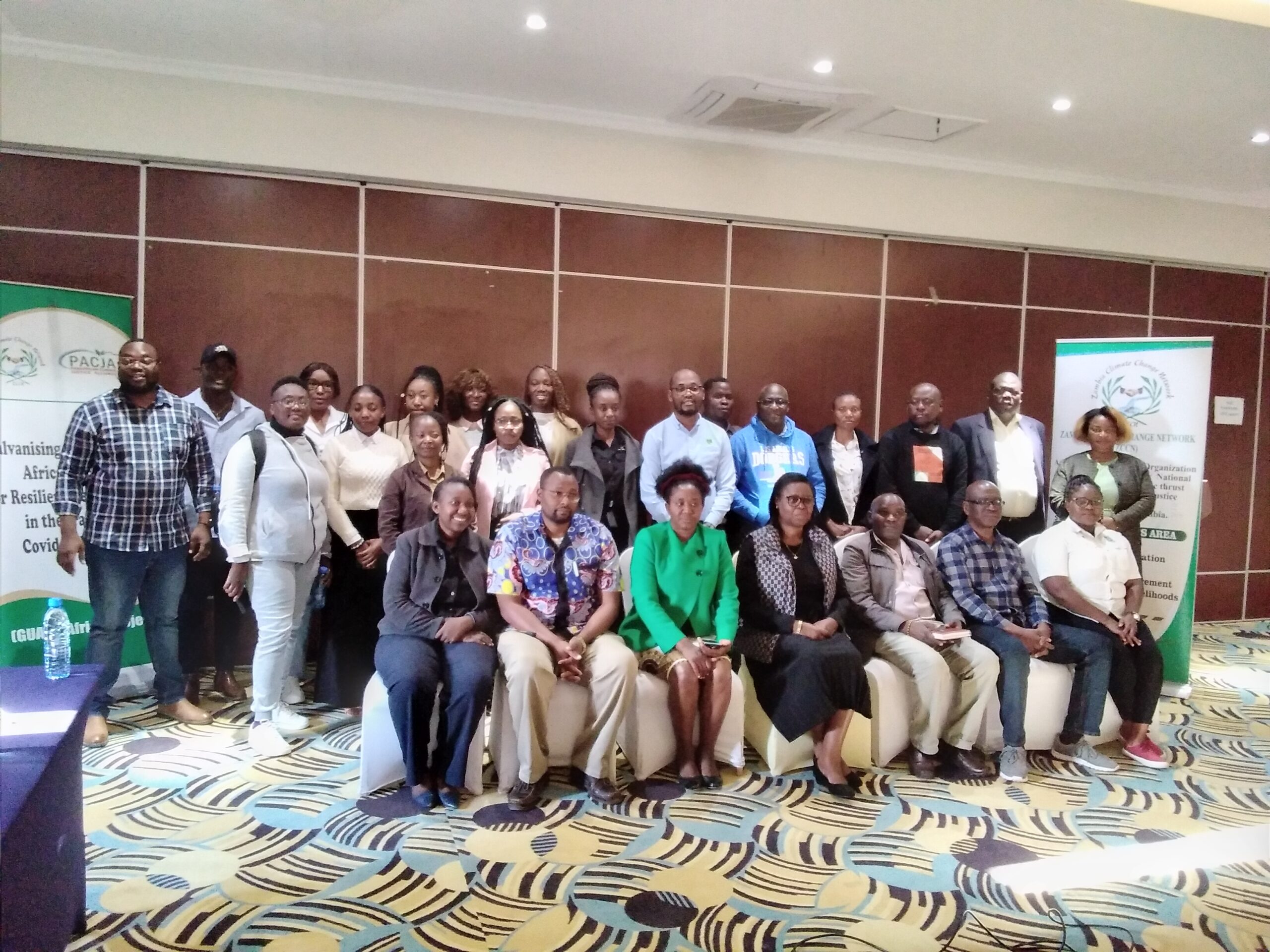
By Happy Mulolani
By the year 2030, Africa alone will require US$ 30 trillion to implement climate change adaptation plans. For this to happen, there is a need for the inclusion of all key stakeholders in the fight against climate change in developing countries.
With seven years left to 2030, experts are concerned that funds pledged by developed countries towards mitigation and adaptation to developing countries are yet to be honoured.
This should give African Negotiators the impetus to lobby for the release of these funds during the forthcoming Conference of Parties (COP28) to be held in the United Arab Emirates (UAE) in November, this year.
Climate Change Specialist and Negotiator Abel Musumali asserts the need to make follow-ups to the various committments and pledges made to assist developing countries, including Zambia to mitigate climate change.
Speaking during a Climate Change consultative meeting in Lusaka, Mr Musumali says the Glasgow Pact and Conference of Parties (COP27) came up with the Sharm el-Sheikh Implementation Plan which reaffirmed its committment towards addressing climatic shocks which hit developing countries, including Zambia. The implementation plan aimed at assisting vulnerable communities in combating the devastating effects of climate change. Although it is common knowledge that some support has been released towards curbing climate change, there is need to make follow-ups on how much progress has been made so far concerning the committments in the implementation plan.
With the status quo, climate change campaigners need to take a pragmatic approach to developing climate change advocacy messages to present during the forthcoming deliberations of the COP.
“It’s imperative to delve into top-line advocacy messages, this implies what messages we have to give to African negotiators as a follow-up on outstanding issues already raised during previous COPs to ensure vulnerable communities are assisted,” said Mr Musumali.
He expressed concern that the progress of some of the committments are not being tracked to help inform negotiations, hence the need to re-think this year’s approach and also take cognisance of the outstanding concerns as well as how best these bottlenecks can be resolved.
For instance, from the time the Paris Agreement came into force in 2015, there is a need to examine the implementation trajectory and interrogate what achievements have been made so far to determine the reduction of gas emissions by 47 percent by 2030.
Ministry of Green Economy and Environment Acting Principal Climate Change Officer Herrick Mwewa says there is a need to strengthen climate change interventions and also work on climate finance tracking which is coming through for the country.
Mr Mwewa explained that there is a need to review, monitor and implement climate actions to attain positive outcomes.
He said it is necessary to add an African voice to make meetings viable and influence meetings for African negotiators.
Zambia Climate Change Network Acting National Coordinator Lydia Chibambo emphasizes the need to also put small-scale food producers at the centre of climate adaptation and be engaged at the local level especially women farmers as well as involve young people.
Numerous research studies by the country’s Think Tank Indaba Agricultural Policy Research Institute (IAPRI) confirm that women are often marginalised despite being the major food producers. As a result, women’s voices need to be amplified in the climate change agenda.
To ensure that all actors and players are part of the process in tackling climate change, there is a need to understand the existing local knowledge systems.
“Getting involved in mitigating climatic shocks will help to drive the locally-led circumstances and utilise local knowledge systems and adaptation,” said Ms Chibambo.
And Zambia Climate Change Network Board Chairperson Monica Chundama urged stakeholders to intensify their efforts in tackling climate change by influencing the national and Africa positions for the forthcoming COP28, noting that doing so will help vulnerable communities.
To achieve climate justice, there is a need for concerted efforts and the inclusion of all stakeholder players.
